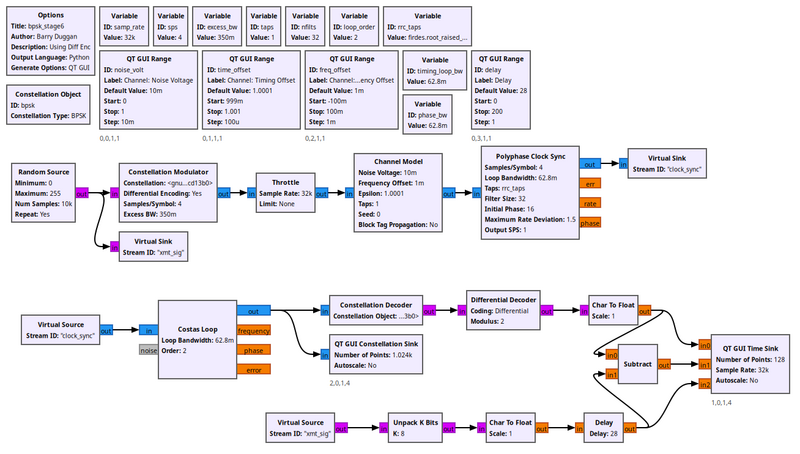Virtual Sink: Difference between revisions
Jump to navigation
Jump to search
No edit summary |
|||
| (One intermediate revision by the same user not shown) | |||
| Line 5: | Line 5: | ||
== Parameters == | == Parameters == | ||
; Stream ID | ; Stream ID | ||
: Specifies the stream ID of the virtual source to read from. | : Specifies the stream ID of the virtual source to read from. To link the stream with a virtual source, the same value of stream ID must be set in the corresponding source and sink blocks. | ||
== Example Flowgraph == | == Example Flowgraph == | ||
| Line 13: | Line 13: | ||
== Source Files == | == Source Files == | ||
; | ; Python files | ||
: [https://github.com/gnuradio/gnuradio | : [https://github.com/gnuradio/gnuradio/blob/main/grc/core/blocks/virtual.py virtual.py] | ||
; Header files | ; Header files | ||
Latest revision as of 05:43, 20 January 2022
When paired with a Virtual Source block, this is essentially the same as drawing a wire between two blocks. This block can be useful for tidying up a complex flowgraph. This block does not support C++ output, so it cannot be used when the output language of a flowgraph in GRC is C++.
Parameters
- Stream ID
- Specifies the stream ID of the virtual source to read from. To link the stream with a virtual source, the same value of stream ID must be set in the corresponding source and sink blocks.
Example Flowgraph
Source Files
- Python files
- virtual.py
- Header files
- TODO
- Public header files
- TODO
- Block definition
- TODO
